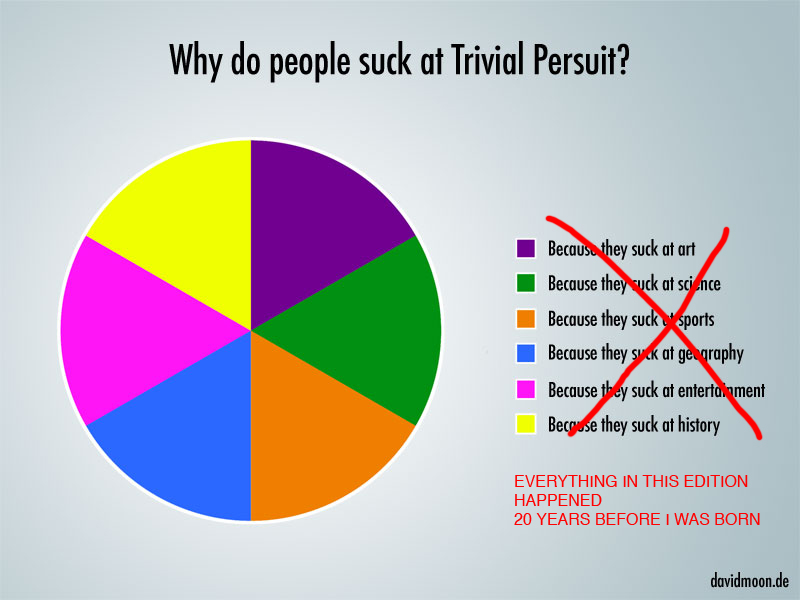What’s The Shelf Life of a Pop Culture Trivia Question?
 This image tweeted this morning by Jason Oberholtzer of the fun blog I Love Charts inspired me to write about something I’ve been meaning to address for a while, and now I have a great excuse!
This image tweeted this morning by Jason Oberholtzer of the fun blog I Love Charts inspired me to write about something I’ve been meaning to address for a while, and now I have a great excuse!
When crafting questions for our NYC corporate trivia team building & entertainment events, TrivWorks focuses on two areas: customization, and pop culture. We do this because we want to draw off of shared experiences, and ensure that we’re asking questions that the specific group of attendees will have a reasonable expectation of knowing the answer to. At our large-scale public events as well, pop culture is key – 300 strangers can’t possibly know about each other, however based on the likely attendees we can be sure to draw from the most appropriate TV, movie, music and celebrity news for the audience.
That said, how long is even a “good” pop culture trivia question “good” for?
There’s no easy answer, but as the above image viscerally demonstrates, there’s no doubt a point at which pop culture trivia gets old, stale or simply dies. Having written something like 15,000 original trivia questions and produced over 500 live trivia events, I CAN tell you that in my experience, people’s pop culture memory is good for about 15-20 years. As a trivia team building professional, to me this means two things:
- A nostalgic pop culture trivia question can be just as effective at producing a positive shared experience as a “fresh” one
- When writing material trying to hit that “sweet spot” between challenging and not too challenging, we are free to go back up to 2 decades
This is of course a balance of art & science, and must be taken on a case-by-case basis depending on both the event and the audience. Sure, there are trivia gurus out there who remember everything – but for the regular Joe like me who’s average at playing trivia at best, yet wants to have a good time playing trivia, figure about a 20-year expiration date on the pop culture questions.
(Image courtesy of macromeme.com)